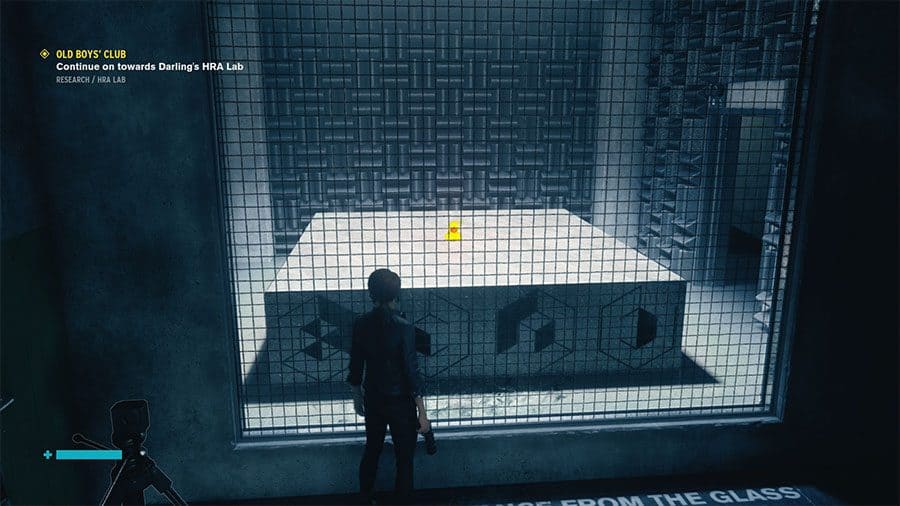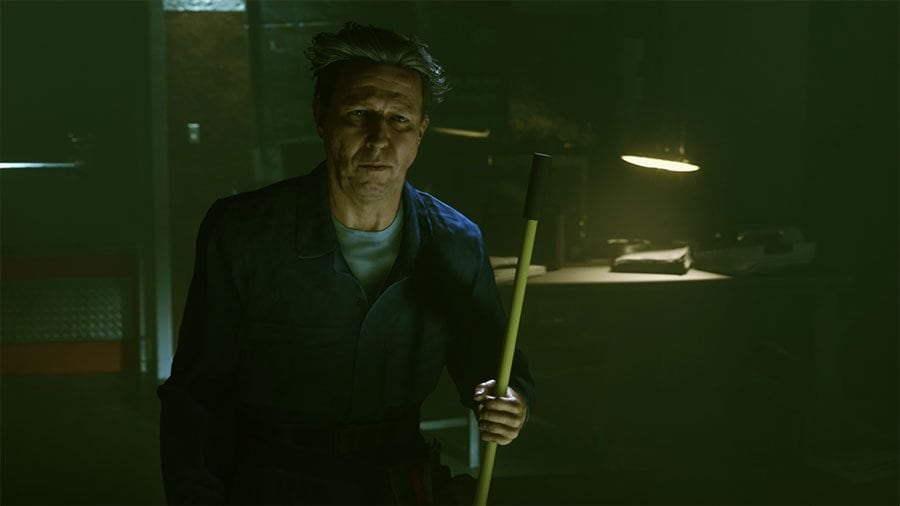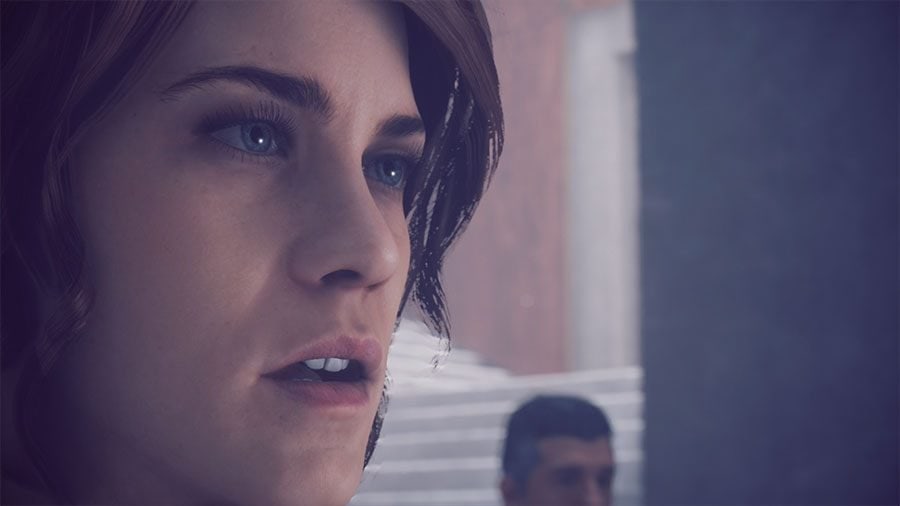Control Review – A Treasure Trove

Official Score
Overall - 90%
90%
Control is a treasure trove of storytelling that is supported by great dialogue, intriguing characters, and stellar voice acting. When paired with its badass combat, it proves to be the complete package.
505 Games and Remedy Entertainment promise a deep and mysterious dive into a world of Parapsychology and objects that defy the very laws of our universe with the release of the third-person action adventure Control. Alan Wake, Max Payne 2, and Quantum Break are just some of Remedy Entertainment’s most beloved games, combining deep narratives with reality-bending combat and rewarding progression. The question is, do they manage to build on the success of past creative directions with this release?
Control Review
[line style=’solid’ top=’10’ bottom=’10’ width=’100%’ height=’1′ color=’blue’]Control follows the story of Jesse Faden (Courtney Hope) as she battles to lift the veil on an unknown and mysterious government agency, the Federal Bureau of Control (FBC). She does all of this in an attempt to locate her lost brother, Dylan. The FBC is a secret branch of the government tasked with locating Objects of Power and maintaining control over Altered World Events. Their base of operations, known as The Oldest House, is an ever-changing, constantly shifting building that remains entirely hidden from those that have yet to discover its existence, even when based in the middle of Manhattan.
Confused yet? We’ll get there.
In the build up to release, 505 Games and Remedy Entertainment demonstrated Control’s fluid, supernatural infused combat in nearly every trailer. While its combat is admittedly a fantastic feature of the game, the story is where the title really shines.
Control’s delivery of its narrative is multifaceted in the most wonderful of ways. Cut-scenes and dialogues with NPCs, hidden bits of lore and detail in collectibles, projectors that play brief videos as you approach…it’s a story with as much depth an intrigue as the time you’re willing to invest to explore it. The script and dialogue are fantastic from start to finish, and Dr. Darling, a key character and top figure of the FBC organization, is a true credit to the work of Matthew Poretta. I often overlook optional lore and collectibles in games, mostly because they are too far detached from the overall experience or delivered in such a way that I struggle to maintain interest.
However, that was not the case in Control. I watched every video of Dr. Darling that I discovered, I read every data entry relating to the mysterious Objects of Power and Altered World Events. Behind each situation that occurred in the game was a buffet of story, character development, and plot detail. Even ignoring all of the optional elements of Control’s story, it’s a thrilling tale that will keep you engaged and yearning for more, even after the final credits role.
The story itself is a combination of my favorite Warehouse 13 episodes with a hint of X-Files. It’s science-fiction told in such a way that its ties to reality leave that ever lingering question: What if? Throughout the game, Jesse discovers unique Objects of Power. These can be anything, from a mysterious French Pram that emanates smoke without a known source, to a swan boat that launches anyone that attempts to sit inside it. These objects can be comical in nature as much as they can be murderous. Diving deeper into the backgrounds of these mysterious objects even ties some to real-life events, such as the “sonic attack” incident on the US Embassy in Cuba.
As I continued to explore the ever changing world of The Old House, I was driven by an excitement to discover more of these objects, and learn more about their origins, eager to uncover more ties to our own reality. It’s difficult to go into too greater detail without spoiling the plots many twists and turns but it’s safe to say, my expectations of Control from a narrative perspective were blown away.
When you’re not chasing down Faden’s brother or attempting to cleanse another deadly Object of Power that escaped containment, you’re dealing with The Hiss. The Hiss is like an infection, and is an otherworldly entity that infects a host in various ways. Many simply become dormant cells, carriers if you will, levitating off the ground and giving each of the many different sectors of Control an eerie, horror-like feel. A short while into the story, its origins, purpose, and intent become Faden’s driving force for continuing her journey.
Battling with The Hiss is a challenging, ever-evolving experience that tests the players ability to adapt and react to ever-growing threats. There is a barrage of different enemy types, each with their own arsenal of attacks. Learning these attacks and how best to deal with particular types of Hiss is a rewarding adventure. Faden has a host of powerful abilities at her disposal. Using the Launch power to grab a thrown grenade mid-air before tossing it back into a group of oncoming Hiss was as satisfying the first time, as much as the last. Later in the game you’re able to take control of enemies, levitate around the combat zone, and shield yourself from fire. Put simply, there’s a good variety that ensures combat never grows stale.
Control’s combat is an absolute blast. It evolves and improves as you unlock and discover new abilities. However, it is not without issue. Several times during my playthrough the game locked up, if only for a brief second, while other times the explosive nature of the combat really took a toll on the frame rates. Almost all of these incidents occurred in very specific areas; it’s not a widespread problem, but a problem nonetheless.
Control’s progression is another area that deserves recognition. The Oldest House is initially very linear, aggressively pushing players towards completing the main objective of the story without much time to do anything else. However, before long, it becomes a sprawling catacomb of exploration. Those with the desire, that urge to always check every corner, every doorway, will flourish in Control.
As you complete side missions and discover hidden locations, you will earn Ability Points and discover various Mods through both Personal Mods and Weapon Mods. Ability Points are used to increase the potency of your powers (sometimes even adding new effects), while mods offer more customizable options when developing your characters arsenal of weapons and abilities. What begins as a rather shallow avenue of customization soon develops into game-changing decisions with mods and abilities that can turn the tide of every battle. Hiding actual abilities, core aspects of the games enjoyment, behind hidden content is a daring move. Despite this, it pays off with a huge level of reward and satisfaction for those willing to explore.
There is a short sequence of Control that sums up the games brilliance entirely, I really wish I could show you. A scene that combines the reality bending nature of the story with the thrilling combat and fantastic soundtrack but alas, to reveal such a sequence would be a huge spoiler. I’ll go as far to say this. It’s reminisce of Ubisoft’s near perfectly executed burning the fields sequence with Skrillex in Far Cry 3, and I only just realized that was seven years ago. Seven years. Anyway, you’ll know what I’m talking about when you get there.
Control is a treasure trove of storytelling that is supported by great dialogue, intriguing characters, and stellar voice acting. When paired with its badass combat, it proves to be the complete package.

[blogger ids=” cat=’honest-game-reviews’ orderby=’date’ order=’desc’ count=’4′ descr=’200′ readmore=’1′ rating=’1′ style=’image_large’ border=’0′ dir=’vertical’]




